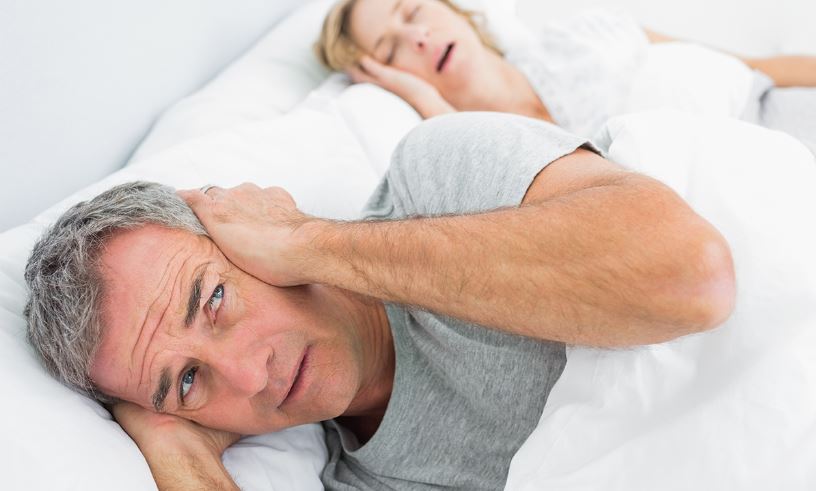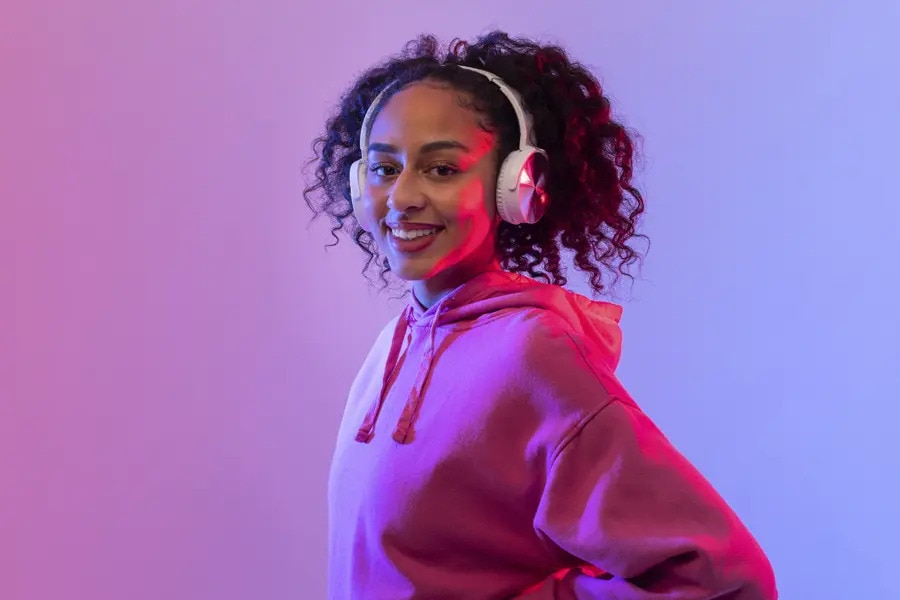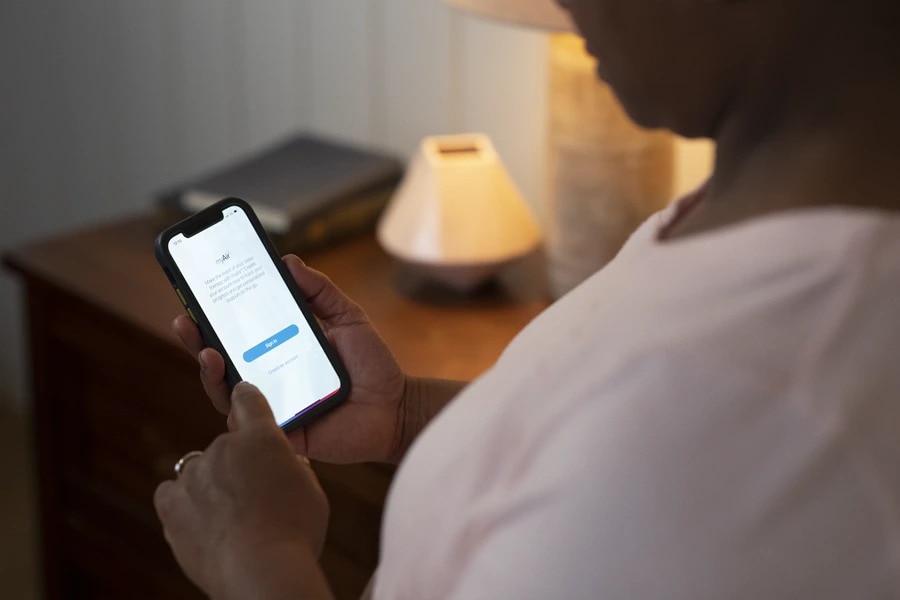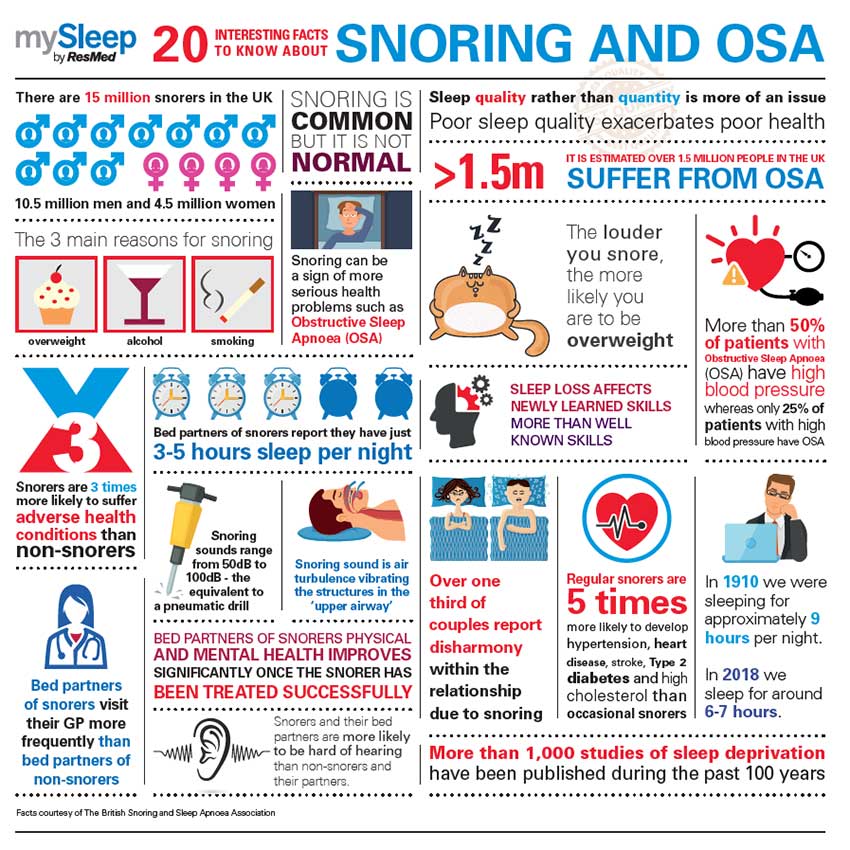It’s National Stop Snoring Week. Get the facts!

April 24th 2018
Every year, the British Snoring and Sleep Apnoea Association celebrate National Stop Snoring Week. This annual UK event started on the 23rd April 2018 and promotes general awareness of snoring with the message that nobody needs to suffer from this condition: snoring can be treated!
Snoring is not just a male problem…
Snoring is not normal but it is common: a 2007 study of 850 men between the ages of 22 to 66 found that 34.6% of them were regularly snoring!1
While men are usually the butt of snoring jokes – indeed most of the images related to snoring feature a frustrated female struggling with their male partner’s snoring – women also suffer from snoring. In fact, it is estimated that there are a whopping 15-million snorers in the UK and 4.5 million of those are thought to be women!
Not all snorers have OSA
However almost everyone who has OSA does snore! It’s a fact that snoring is a main symptom of obstructive sleep apnoea (OSA)2; the link between snoring and sleep apnoea is quite striking: 3 in 10 men and nearly 2 in 10 women who are regular snorers also suffer to some degree from OSA3





